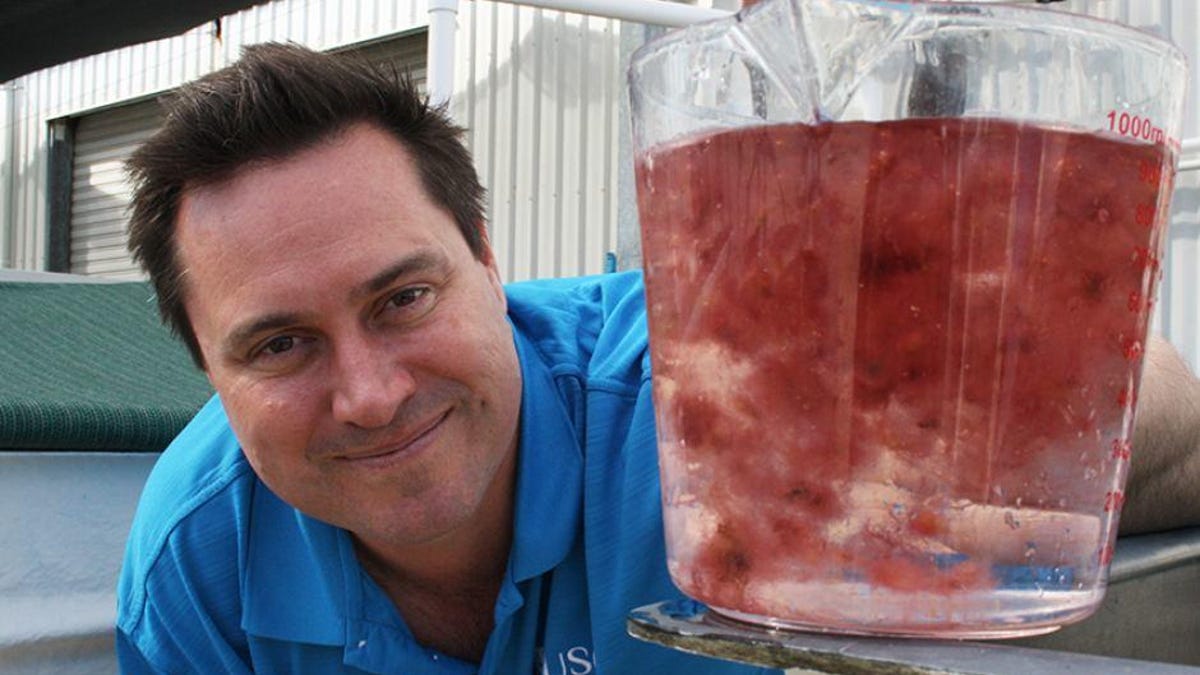Scientists want to mass-produce seaweed that stops cows burping methane
Finding a way to farm seaweed on a global scale could dramatically lessen greenhouse gas emissions worldwide.

University of the Sunshine Coast Associate Professor Nicholas Paul holds up a container of the pink seaweed Asparagopsis.
In 2014, Australia's national science agency CSIRO discovered that by adding the pink seaweed Asparagopsis to a cow's diet, it reduces the amount of the gas produced by the cow up to 99 per cent.
Now scientists want to farm Asparagopsis on a large scale to reduce Australia's greenhouse gas emissions -- and the world's.
University of the Sunshine Coast (USC) Associate Professor Nicholas Paul said if enough pink seaweed was grown it could help to reduce greenhouse gas emissions in Australia by an impressive 10 percent, according to ABC news on Wednesday.
"When added to cow feed at less than two percent of the dry matter, this particular seaweed completely knocks out methane production," Paul said in a statement on Wednesday. "It contains chemicals that reduce the microbes in the cows' stomachs that cause them to burp when they eat grass."
The USC team headed by Paul is currently working at the Bribie Island Research Centre in Moreton Bay, Australia to learn more about how to grow the pink seaweed species to better figure out a solution to scale-up of production of the seaweed.
The best way to increase the pink seaweed supply is to find the fastest way to grow it outside of a lab.
"We know the chemical composition of Asparagopsis and we know the chemical compounds, so now we want to maximize the concentration of that chemical so we can use less seaweed for the same effect," USC Seaweed Research Group project scientist Ana Wegner said in a video about the discovery.
"If we're able to work out how to scale up the seaweed to become at a level that can feed all of the cows and the sheep and the goats around the world then it's going to have a huge impact on the climate," Paul said in the video.

